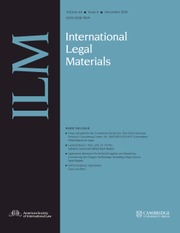Manifestations of Coherence and Investor-State Arbitration
Coherence is highly valued in law. It is especially sought after in investor-state dispute settlement, where charges of incoherence in arbitral awards have long been raised by states and scholars. Yet coherence is a largely underexplored notion in international law. Often, it is treated as a mere ideal to strive towards or simply as a different way to describe the legal consistency of judicial outcomes. This book takes a different approach. It sees coherence as an independent concept having two dimensions: a substantive and a methodological one. Both are critically important for legal reasoning by international courts and tribunals, including by investor-state tribunals, and the book illustrates through several case studies some of the ways this conclusion is borne out in practice. A fuller understanding of coherence in international law has implications for our understanding of the concept of law, the practice of legal reasoning, and judicial professional ethics.
- Analyses a key legal concept currently being discussed in international multilateral fora where future institutional design is being contemplated
- Fills a gap in the international law literature
- Clarifies abstract legal theories and theories on practical decision-making in accessible language
Product details
January 2023Hardback
9781009153850
400 pages
235 × 157 × 25 mm
0.67kg
Available
Table of Contents
- Introduction
- 1. The content of coherence
- 2. Coherence and legal reasoning
- 3. Two models for coherence
- 4. Coherence and the interpretation of treaties
- 5. Coherence and analogical thinking
- 6. Coherence as reflexivity
- 7. Coherence as moral responsibility
- Coda: coherence and investor-state dispute settlement reform
- Epilogue.









